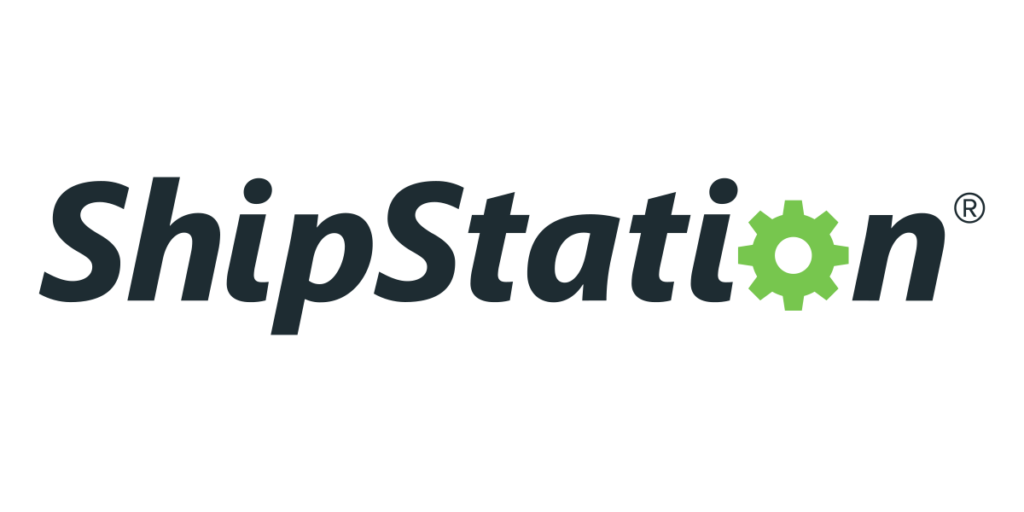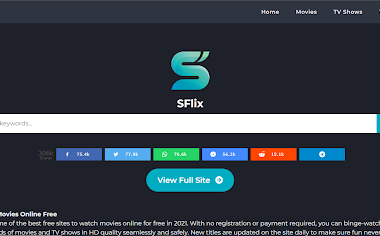In today’s dynamic e-commerce landscape, seamless order fulfillment and efficient shipping processes are crucial for the success of any online business. While Webshipper has been a popular choice for e-commerce logistics and shipping solutions, there are several alternatives that offer competitive features and capabilities to meet the diverse needs of businesses. In this comprehensive guide, we’ll explore the realm of Webshipper alternatives, discussing their features, limitations, and why you might consider exploring other options. Let’s dive in!
Understanding Webshipper: Features, Limitations, and Distinctive Aspects
1. Key Features of Webshipper
Webshipper is known for its array of features that streamline shipping operations for e-commerce businesses. One of its standout features is multi-carrier integration, which allows businesses to connect with a variety of carriers seamlessly. This integration provides access to real-time shipping rates, enabling businesses to choose the most cost-effective shipping options for their specific needs. Moreover, the platform’s robust order management capabilities ensure that the entire order processing journey, from creation to fulfillment, is seamless and efficient.
Another significant feature is the platform’s shipping label generation functionality. With just a few clicks, businesses can generate shipping labels for different carriers, reducing the time and effort required for this crucial task. Additionally, Webshipper’s automation and customization features empower businesses to create rules and workflows that automate repetitive tasks. This not only saves time but also ensures accuracy throughout the shipping process.
2. Limitations of Webshipper
However, as with any platform, there are certain limitations associated with Webshipper. One of the primary considerations is cost. The pricing structure of Webshipper might be prohibitive for smaller businesses with limited budgets, especially if they’re not utilizing the full range of features. This cost-effectiveness factor becomes crucial when businesses are seeking to optimize their operational expenses.
Moreover, the complexity of Webshipper’s feature set might be a concern for businesses new to the platform. While its comprehensive features are undoubtedly advantageous, they can also contribute to a steeper learning curve. Businesses might need to invest additional time and resources in training their teams to make the most of the platform’s capabilities. Additionally, as businesses scale and operations expand, the scalability of Webshipper could potentially become a limitation. Ensuring that the platform can grow alongside your business is essential for long-term success.
3. What Sets Webshipper Apart?
Webshipper’s strong multi-carrier integration, robust automation features, and advanced customization options have made it a preferred choice for many e-commerce businesses. However, the evolving landscape of shipping solutions means there are several compelling Webshipper alternatives worth considering. Let’s explore some of the commonly used Webshipper alternatives and their key features:
Why Explore Webshipper Alternatives?

Considering the competitive nature of the e-commerce landscape, exploring alternatives to Webshipper can offer several advantages. The decision to explore Webshipper alternatives isn’t about disregarding Webshipper’s capabilities but rather about aligning with your specific business needs and objectives. Let’s delve into some compelling reasons to explore Webshipper alternatives:
1. Diverse Business Needs
E-commerce businesses come in various sizes and models. Your business might have unique shipping requirements that another platform can cater to more effectively. Exploring Webshipper alternatives ensures that your chosen solution aligns precisely with your business model.
2. Budget Considerations
Cost is a critical factor for any business decision. While Webshipper might offer robust features, its pricing structure might not be the best fit for your budget. Exploring alternatives can help you find a solution that offers the right balance between functionality and affordability.
3. Simpler Solutions
Depending on your team’s familiarity with shipping platforms, you might prefer an Webshipper alternative that offers a simpler and more intuitive interface. Some businesses prioritize ease of use and a shorter learning curve when choosing a shipping solution.
4. Scalability and Growth
As your business expands, so do your shipping needs. A solution that can seamlessly scale to accommodate increased order volumes and evolving shipping complexities is crucial for sustained growth.
Commonly Used Webshipper Alternatives For E-Commerce Shipping

1. ShipStation
ShipStation stands out with its intuitive interface and seamless integration with multiple e-commerce platforms and carriers. Its features include:
- Order and Shipment Management: ShipStation simplifies order processing and shipment creation. You can efficiently manage orders, generate shipping labels, and track shipments all in one place.
- Automation for Efficiency: Automation rules within ShipStation enable you to streamline your workflow. Set up rules for order routing, shipping method selection, and more.
- Real-Time Tracking and Notifications: Keep both your team and customers informed with real-time tracking updates and customizable shipping notifications.
- Insights and Reporting: Gain valuable insights into your shipping operations. ShipStation provides reporting tools to help you make informed decisions based on data-driven analytics.
2. Shippo
Shippo takes a simplified approach to shipping solutions. Its features include:
- Multi-Carrier Integration: Shippo seamlessly integrates with multiple carriers, ensuring that you have access to a wide range of shipping options.
- Label Creation and Printing: Generate shipping labels quickly and easily, reducing manual efforts and the risk of errors.
- Rate Comparison: Shippo allows you to compare shipping rates across carriers, helping you choose the most cost-effective option for each shipment.
- Address Validation: Ensure accurate deliveries by validating addresses before creating labels, reducing the likelihood of shipping-related issues.
3. Easyship
Easyship positions itself as a comprehensive global shipping solution. Its features include:
- Access to a Wide Network of Couriers: With Easyship, you can tap into a network of couriers, both local and international, giving you flexibility in your shipping choices.
- Real-Time Shipping Rates: Get real-time shipping rates based on your shipment’s dimensions, weight, and destination. This empowers you to make informed shipping decisions.
- Automated Customs Documentation: For international shipments, Easyship simplifies customs documentation, making cross-border shipping smoother.
- Dashboard for Tracking and Analytics: The Easyship dashboard provides you with insights into your shipping activities, helping you track shipments and identify trends.
4. ShipBob
ShipBob specializes in e-commerce fulfillment services. Its features include:
- Warehousing and Order Picking: ShipBob offers warehousing solutions and efficient order picking, ensuring timely fulfillment.
- Inventory Management: Keep track of your inventory levels in real time, helping you manage stock and prevent stockouts.
- 2-Day Shipping: ShipBob’s 2-day shipping promise can enhance customer satisfaction by offering fast and reliable delivery options.
- Integration with E-Commerce Platforms: Seamlessly connect ShipBob with your e-commerce platform for streamlined order processing.
5. Ordoro
Ordoro is geared towards order and inventory management. Its features include:
- Multi-Channel Order Processing: Manage orders from multiple sales channels in one platform, reducing the complexity of order management.
- Dropshipping Management: If your business involves dropshipping, Ordoro facilitates the process by automating order routing to suppliers.
- Batch Shipping and Label Printing: Streamline your shipping workflow by processing multiple orders at once and printing labels in batches.
- Insights into Sales Performance: Ordoro’s reporting tools provide insights into your sales performance and trends, enabling informed business decisions.
6. ShipRush
ShipRush offers multi-carrier shipping solutions for e-commerce businesses. Its features include:
- Integration with Popular E-Commerce Platforms: Connect ShipRush to your preferred e-commerce platform for seamless order import and shipping.
- Batch Processing for Efficiency: Process multiple shipments simultaneously, improving efficiency and reducing manual effort.
- Rate Shopping: Compare shipping rates across carriers to choose the most cost-effective option for each shipment.
- Customizable Email Notifications: Keep your customers informed with automated email notifications at different stages of the shipping process.
7. ShippingEasy
ShippingEasy streamlines shipping and order management. Its features include:
- Automation of Shipping Processes: Automate various aspects of your shipping workflow, from label creation to order updating.
- Order Consolidation: Combine multiple orders into a single shipment to reduce shipping costs and improve efficiency.
- Email Marketing Integration: Seamlessly integrate with email marketing platforms to engage with customers post-purchase.
- Inventory Management and Reporting: Keep track of inventory levels and access reporting tools for insights into your shipping operations.
8. Stamps.com
Stamps.com offers online postage and shipping solutions. Its features include:
- Printing Shipping Labels and Postage: Print shipping labels and postage from the comfort of your workspace, saving time and effort.
- Integration with E-Commerce Platforms: Connect Stamps.com with your e-commerce platform to streamline order data exchange.
- Address Validation and Tracking: Ensure accurate deliveries with address validation and keep track of shipments through tracking features.
- Customized Shipping Preferences: Tailor your shipping preferences according to your business needs, from packaging options to shipping methods.
9. Parcelhub
Parcelhub focuses on parcel shipping solutions. Its features include:
- Access to a Variety of Carriers: Gain access to a diverse network of carriers, giving you flexibility in choosing shipping partners.
- Label Printing and Tracking: Print shipping labels efficiently and track parcels to ensure timely deliveries.
- Consolidation Services: For businesses with bulk shipments, Parcelhub offers consolidation services to streamline the shipping process.
- Reporting and Analytics: Utilize reporting tools to gain insights into your shipping activities and identify areas for improvement.
10. Multiorders
Multiorders provides comprehensive inventory, order, and shipping management. Its features include:
- Multi-Channel Order Processing: Efficiently manage orders from various sales channels in one platform, reducing complexity.
- Inventory Synchronization: Keep inventory levels consistent across multiple platforms, preventing overselling and stockouts.
- Shipping Label Creation: Generate shipping labels seamlessly within the platform, saving time and reducing errors.
- Insights into Order and Shipping Data: Access data-driven insights into order trends, shipping performance, and more.
Factors To Consider While Choosing The Perfect Webshipper Alternative

When selecting an Webshipper alternative, it’s essential to consider several factors to ensure a seamless transition and optimized shipping operations. Here are the key factors to keep in mind:
1. Compatibility with Your E-Commerce Platform
Ensure that the Webshipper alternative seamlessly integrates with your e-commerce platform. A robust integration ensures smooth data exchange and order processing, minimizing manual effort and errors.
2. Range of Shipping Options and Rates
Evaluate the range of carriers the Webshipper alternative supports and compare the shipping rates they offer. This step is crucial for choosing the most cost-effective shipping options for your business.
3. Scalability and Flexibility
As your business grows, your shipping needs will evolve. Choose an alternative that can scale seamlessly to accommodate increased order volumes and changing shipping requirements.
4. User-Friendly Interface and Ease of Use
Consider the intuitiveness of the Webshipper alternative’s interface. An easy-to-use platform reduces the learning curve for your team, enabling them to adopt the solution more quickly and efficiently.
5. Automation and Customization Capabilities
Automation is key to streamlining shipping processes. Look for alternatives that offer robust automation features, allowing you to create rules and workflows that align with your unique business processes.
Conclusion
In conclusion, while Webshipper presents a range of features and benefits, exploring alternatives can open doors to solutions that better match your business’s specific requirements. Each alternative mentioned above brings its unique strengths to the table, empowering you to optimize your shipping operations for efficiency and customer satisfaction. By carefully considering factors such as compatibility, shipping options, scalability, user-friendliness, and automation capabilities, you can confidently choose the perfect Webshipper alternative that propels your e-commerce shipping strategy toward success.









